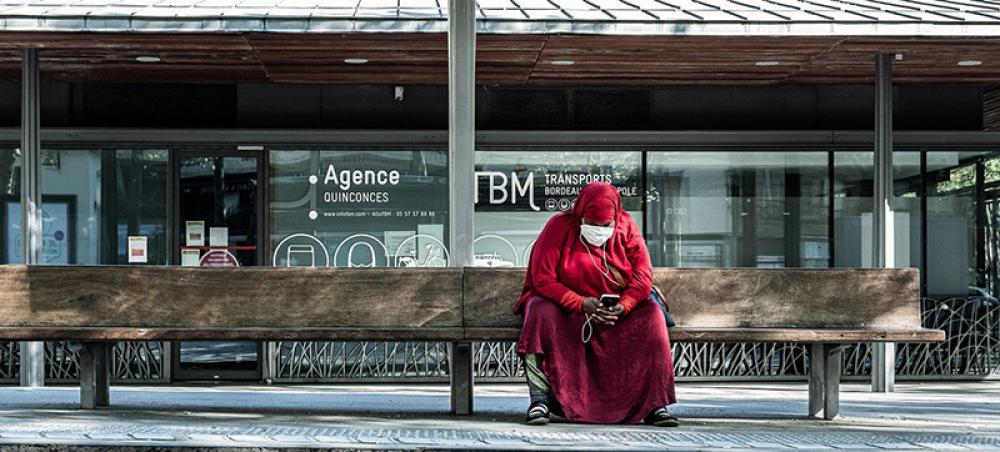Just Earth News | @justearthnews | 06 Sep 2023, 06:20 am Print
 Africa
Africa Photo Courtesy: Unsplash
New York: Members of the African diaspora continue to face immense challenges participating in public life in many countries, the UN human rights office (OHCHR) said in a new report on Tuesday.
It details how systemic racism, marginalization and exclusion, rooted in the legacies of enslavement and colonialism, continue to have a negative effect on all aspects of life.
UN High Commissioner for Human Rights Volker Türk urged States to “accelerate action towards meaningful, inclusive and safe participation for people of African descent in every aspect of public affairs”.
Tackling systemic racism
The UN rights chief emphasized that efforts to address systemic racism must be grounded in evidence, with data analysed in terms of race and ethnic origin.
But he warned that many countries still do not collect, publish, or use such data to inform policymaking.
While the report includes examples where participation has been facilitated, it cautions that there are persistent challenges and the lack of “a safe and enabling environment” in many countries.
“Racial abuse and discrimination, surveillance, harassment, intimidation, arrests and violence against people of African descent and civil society actors of African descent, hinder meaningful, inclusive and safe participation for people of African descent in public affairs in many countries,” Mr. Türk said.
Targeted action
The High Commissioner urged States to take targeted action to change the status quo.
This includes evidence-based legal, policy and institutional approaches to dismantle systemic racism, including in law enforcement, as described in a new guidance note on transformative change for racial justice and equality.
Deaths continue
According to the OHCHR report, the deaths of people of African descent during or after interactions with law enforcement continue.
It found that little progress has been made to address impunity – despite attempts by families seeking justice.
“Deaths during or after interactions with law enforcement continue to be reported, with insufficient progress towards accountability and redress,” Mr. Türk said.
“States need to take firm action to ensure justice and redress in these cases, and to put in place strengthened and independent oversight mechanisms. It is essential that they examine what role racial discrimination, stereotypes and biases play in law enforcement and accountability processes,” he added.
The case of Adama Traoré
Speaking in Geneva, OHCHR spokesperson, Ravina Shamdasani, pointed out that the death of 24-year-old Adama Traoré in police custody in 2016 was “one of seven illustrative cases” in the report, demonstrating the “challenges that families of African descent face in seeking truth and justice promptly”.
Last week judges concluded that the gendarmes responsible for his arrest in Beaumont-sur-Oise, north of Paris, had not committed “illegitimate intentional violence” and could not be charged for failing in their duties.
Ms. Shamdasani emphasized that OHCHR is watching the case closely following the family’s decision to appeal the ruling.
She noted that: “Seven years after his death the family are still waiting for the full truth to be formally established, for corresponding responsibilities and for appropriate measures to be taken to ensure that justice and effective remedies are put in place so such an incident cannot occur again”.
She added that the report highlights allegations of an online smear campaign and threats against Adama Traoré's sister.
These include posts from accounts on social media site X of two professional police unions, following her cooperation with the Committee on the Elimination of Racial Discrimination (CERD) last year.
“We will continue to follow this closely,” she said.
Reparations
Regarding questions of reparations for people of African descent, Ms. Shamdasani pointed out that the High Commissioner has insisted on several pillars of the response to systemic racism.
These include “confronting the legacies of the past, accountability and redress”. She stressed that Mr. Turk believes “States need to recognise that behind contemporary forms of racism, dehumanization and exclusion, is a failure to acknowledge responsibilities for enslavement”.
He believes there is a need to “comprehensively repair the harms”.
She emphasized again that the process of redress needed to be “informed by people of African descent,” with “wide-ranging initiatives, including formal acknowledgement, apologies, truth-telling processes and reparations in various forms. This should be structured through “the effective participation of people of African descent and their communities,” she added.
- Caught on camera: Two foreigners assaulted in Israel in an alleged racial attack
- Pakistan: Parents heartbroken after court sides with man accused of kidnapping minor Christian girl
- Pakistan: Trafficked 35 years ago, Bangladesh-born woman approaches court against FIA for offloading her from flight!
- Hindu tea worker found bound and bloodied in Bangladesh garden during general elections; investigation underway
- Brutal killing shakes Bangladesh: Hindu trader hacked to death ahead of polls





-1763561110.jpg)
